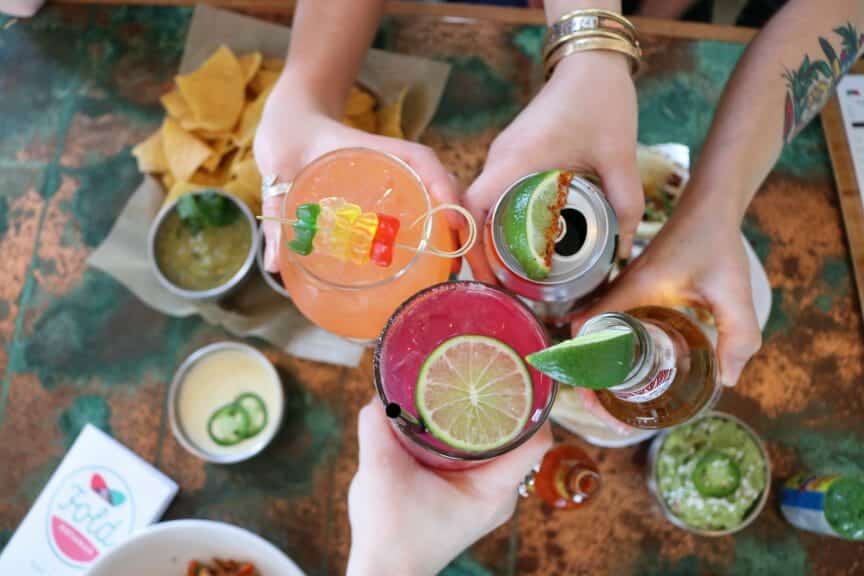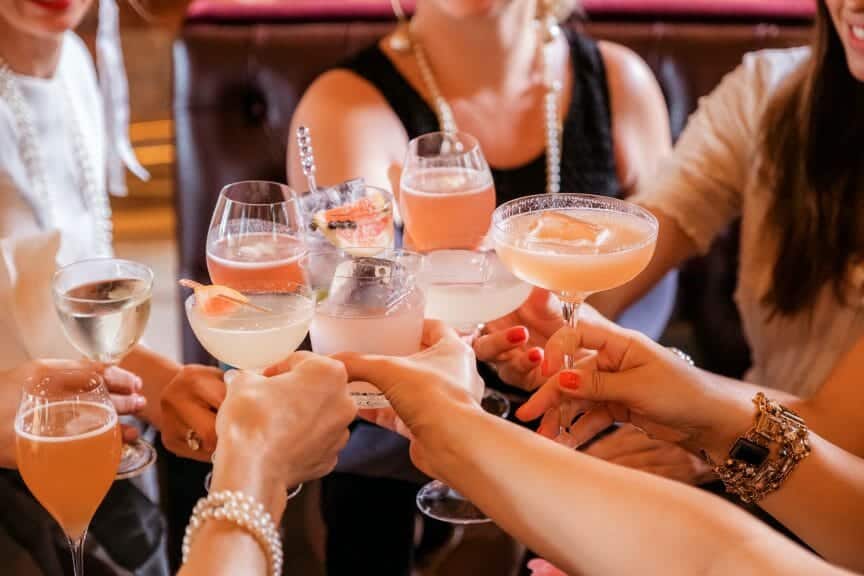In recent years, there has been a noticeable increase in the number of young people choosing to live a sober lifestyle.
For many people growing up, drinking alcohol is viewed as an induction into adulthood. Opting into alcohol––purchasing it legally, imbibing it without limitations, bowing to the porcelain throne-–is celebrated as a rite of passage.
However, in recent years, many people have emphasized sobriety, abstaining partially or completely from alcohol and other substances.

Credit: Shutterstock/Carly Garner
The Rise of Sober Youth
In a 2019 study, researchers found that young adults, or people between 16 and 25 years old, are the most likely of all age ranges in the U.K. to be sober. In fact, 26% of study participants in the young adult range abstained completely from alcohol.
In the United States, 28% of young adults between 18 and 22 years old are sober. This is a significant increase from 2002, when roughly 20% of young adults reported practicing sobriety.
Conversely, in the United States, people aged 35 to 54 years old are the most likely to drink alcohol, with 70% of the interviewed population reporting drinking at least weekly.
When interviewed, young adults cite a variety of reasons.
Many explain that they are opting away from alcohol to protect their health, wellness, and personal life satisfaction. The decision to be sober is often pursued by people in order to improve their physical and mental health, as well as to strengthen their relationships with others and themselves.
Many people also realize they don’t enjoy the sensation of the mind-altering substance, much less the hangover the next day.
What Alternatives Are People Seeking?
Generation Z may be the era of technology, but it is also the generation of yummy drinks. Across TikTok and social media, people share their favorite morning coffee routine, matcha shop, and their “perfect summer mocktail” recipe by the thousands.
Drinking, be it alcohol, coffee, or kombucha, at the park is a major element of socializing. So how are young people maintaining their social relationships while protecting their relationships with themselves and substances?

Credit: Unsplash/Roman Kraft
Simply put, people are separating the verb “drinking” from the noun “alcohol.” By widening the possibilities of imbibement, people are protecting their pleasure and well-being.
Moreover, non-alcoholic or alcohol-free beers, wines, and other beverages have increased in popularity in recent years.
Many people who choose to live a sober lifestyle or who want to cut back on their alcohol consumption are turning to alcohol-free drinks or non-alcoholic alcohol replicants as a way to still enjoy the taste and social element of drinking without experiencing the mind-altering effects of alcohol.
What about ‘California Sober’?
Choosing sobriety looks different for everyone. Many people choose to eliminate alcohol from their lives but do not seek to eliminate other drugs, such as cannabis or psychedelic products.
For some people, being ‘Cali sober’ means abstaining from alcohol and other drugs while still using cannabis and/or psychedelics.
Whether used for recreational or therapeutic purposes, cannabis, and psychedelic drugs can play as important a role in someone’s life as alcohol does not. Recent psychiatric and therapeutic advances celebrate the positive effects of mind-altering drugs, including cannabis and psychedelics, to treat PTSD and other mental illnesses.
However, it’s important to note that individuals interpret the term ‘California sober’ differently, and there is no universally agreed-upon definition.
Overall, sobriety is a personal choice, and no one-size-fits-all approach exists. The most important element to consider is finding what works best for you and your well-being.






